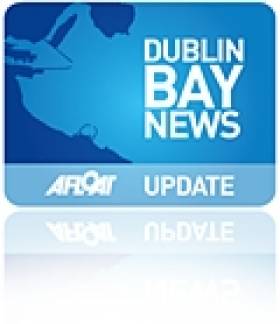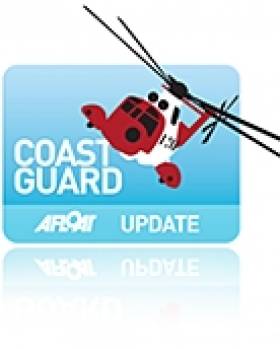Displaying items by tag: Leo
Ex Sailing Chief Lashes 'Grandiose' Dun Laoghaire Harbour Plan
A former Irish Sailing Chief has added his voice to the growing concerns of sailors in Dun Laoghaire to a recently published Harbour Masterplan that Waterfront Yacht Clubs say threatens sailing in the port, Ireland's biggest sailing centre.
The plans, along with the loss of the winter ferry service from the port were featured on RTE News this week.
The Harbour company, who published the designs last month, say the masterplan can create 'a thousand jobs' but a former Irish Sailing Association (ISA) President, Roger Bannon has blasted both the plan and a supporting promotional video (below) as 'grandiose nonsense'.
"The Masterplan will position Dun Laoghaire Harbour as a marine, leisure and tourism destination of international calibre", says Gerry Dunne, Chief Executive Officer, Dun Laoghaire Harbour Company.
"We need to spend an average of €5m a year on maintaining and developing the Harbour infrastructure. The Masterplan will involve investment of more than €230m, over the next 10-15 years and will result in 1000 sustainable jobs in areas such as tourism, marine service companies, select retail, and food and beverage." says the CEO.
But Bannon, a Dun Laoghaire sailing champion, says a plan is needed but the focus instead should be on something a lot more realistic.
"Sure we want a development plan for Dun laoghaire and its Harbour but let's look at something realistic and practical over a 10 year period which we know will work and stay away from this impossible grandiose nonsense.
Mr Leo Varadkar, T.D., Minister for Transport, Tourism and Sport visited the Harbour Board in June to view the Masterplan model and the plans.
During the visit the Minister said he was aware of the very keen local interest in the future development of the harbour. The yacht clubs, who occupy 50% of the harbour waterfront, say the future of the harbour is in marine lesiure.
Bannon's full comments are below:
"What a load of aspirational twaddle. High on sweeping statements and low on specifics. Sounds more like a plan to occupy people in highly paid jobs while nothing will ever happen.
Sure we want a development plan for Dun laoghaire and its Harbour but let's look at something realistic and practical over a 10 year period which we know will work and stay away from this impossible grandiose nonsense.
There are plenty of examples of cost effective developments in many cities around the world, such as Vancouver and Boston, where marine facilities and other resources similar to Dun laogahire have been brilliantly exploited for the general benefit of everyone.
Heaven forbid that our public servants might learn something from others facing the same dilemma elsewhere in the world. Should someone tell the Harbour Board that counting on residential development to generate funding may not work?
Finally, I do not understand how the Harbour Board can take it upon itself to come up with such a plan without integration with local planning for the whole of Dun Laoghaire. Was the video made by DreamWorks?"
Speaking today, Minister for Transport Leo Varadkar TD said: This invitation to Achill Coast Guard Unit is an acknowledgement of the life-saving work that this Unit (and indeed all our Volunteer Units) around the country are engaged in every day of the year. Every day, these people selflessly risk their own lives to save others in all weathers, day and night, often in very dangerous conditions. This invitation is in recognition of their work and is an indication of the high esteem in which our Coast Guard Units are held internationally."
Achill Island Coast Guard Unit is made up of 24 volunteers who carry pagers and are available on 15 minutes' notice day and night 365 days a year. In August 2009 the Unit took part in a search and rescue operation for a person who fell into the Atlantic Ocean while fishing off the rocks near Achill Island. In response to this incident, the Achill Coast Guard rescue boat was launched together with local RNLI Ballyglass Unit and the Sligo Coast Guard helicopter during very hazardous weather conditions. The casualty (a Mr. Patrick Williamson) who amazingly stayed afloat swimming in high seas for over an hour was successfully rescued and spent 5 days in intensive care following his ordeal in the sea.
On making a full recovery, Mr. Williamson nominated Achill Island Coast Guard Unit for a National Courage Award. Previous recipients of this honour include the Irish Army (for peacekeeping duties) and former Taoiseach Mr. Bertie Ahern (for his involvement in the peace talks in Northern Ireland).
Director of the Irish Coast Guard, Mr. Chris Reynolds today said: "The Achill Coast Guard Unit is well-deserving of this honour and I congratulate them on being part of this special event. It is a great recognition of the standard and quality of service the Coast Guard provide and I thank Mr. Williamson along with all who helped make this happen for inviting them to take part in this special event."

























































